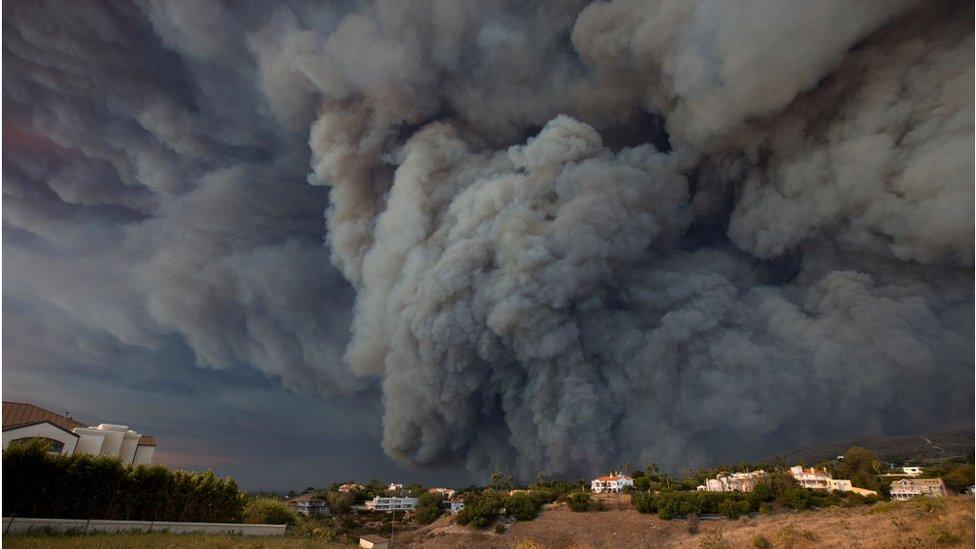California wildfires: Why are so many listed as missing?
- Published
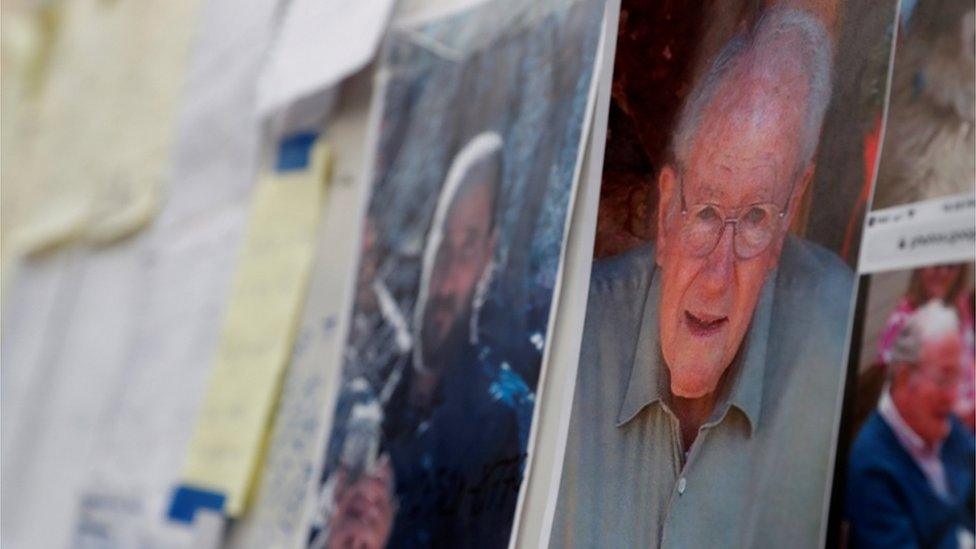
The number of missing jumped from 110, to 220, to 631 on Thursday before going over 1,000
Over the last few days the number of people unaccounted for in the deadly Camp Fire in northern California skyrocketed to more than 1,200, before falling again to just below 1,000.
The sudden jump led to some confusion among locals and officials alike.
The confirmed death toll of 77 is already a state record, so could this huge number of missing people really still be added to that?
The answer is not so simple, as authorities in the worst-hit area, Butte County, have openly admitted.
On Friday, when the list first soared to over 1,000, Sheriff Kory Honea described the database as "dynamic".
"The information I am providing you is raw data and we find there is the likely possibility that the list contains duplicate names," the sheriff said on Friday.
Officials say the large fluctuation is occurring as investigators try to compile all the missing person reports from calls, reports and emails since the fire began on 8 November.
The fire spread rapidly, and many have reported having only minutes to gather their loved ones to try and escape through congested roads.
Drone footage shows complete devastation in the Californian town of Paradise
Because of the intensity of the fire, officials have warned the full recovery may take weeks as hundreds of specialists and cadaver dogs use reports to find and search residences for evidence of human remains.
Some news sources were quick to point out duplications or strange anomalies in the county's list, including an earlier version which listed five missing people as aged 119,, external according to the New York Times.
The newspaper reported that they were able to locate some people from the list on social media, who confirmed they were, in fact, fine.
The Associated Press (AP) highlighted the case of one resident, Tamara Conry,, external who posted on Facebook to reassure people of her safety.
"My husband and I are not missing and never were!" she wrote Thursday night on one of the pages for missing people.
"We have no family looking for us ... I called and left a message to take our names off."
Sheriff Honea has defended the decision to publish the list in its "raw" form.

"I can't let perfection get in the way of progress," the sheriff told the media on Friday.
"It's important for us to get the information out so that we can get started on identifying these unaccounted individuals."
With more than 12,000 buildings destroyed in the Camp Fire and evacuation orders still in place across swathes of California, thousands of residents are now spread out in temporary accommodation or shelters.
The difficulties in keeping track of who are actually missing, then, are obvious - and communication problems are compounding these further.
As towers and power lines perished in the blaze, so did mobile phone service in places. In some areas, temporary towers had to be installed by providers.
Away from the official list on the county website, missing posters are also being tacked around local bulletin boards and trees at encampments.
Further afield, loved ones and friends are relying on social media groups to share images and information about people who haven't been in touch.
On the county list, many of the people whose ages are listed are elderly - reflecting the area's popularity as a retirement hotspot.
Paradise, the town in Butte County that was devastated by the wildfire, has an estimated population of about 27,000.
According to the latest census, about a quarter of those are aged 65 or over.
California wildfires survivor's tearful account of escape with son
Eric Reinbold, the chief of police in Paradise, said the list's demographics underscore the difficulties in evacuating older residents in rapid emergency situations.
"Like any community, we had elderly folks and some of them gave up driving or can't drive," Chief Reinbold said.
If they did make it out, older residents may also be less likely to have access to the internet or other mobile communications to contact people they know.
Sheriff Honea said that because of displacements, many of those on this list may not even be aware that people are looking for them.
A spokesman for his office told AP that the list was not a "real-time" reflection of who is missing, but is being widely publicised in the hope it will prompt people to call in to say they are okay.
Authorities are continuing to implore locals to double-check the list as it is updated and let them know, by phone and not voicemail, about people who are confirmed safe, in order to help focus their already stretched resources.

- Published16 November 2018
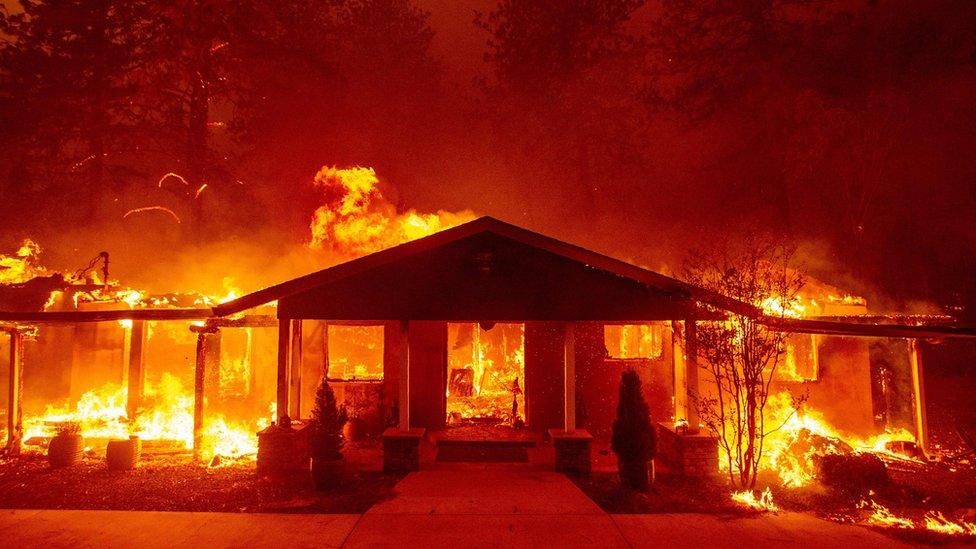
- Published14 October 2020
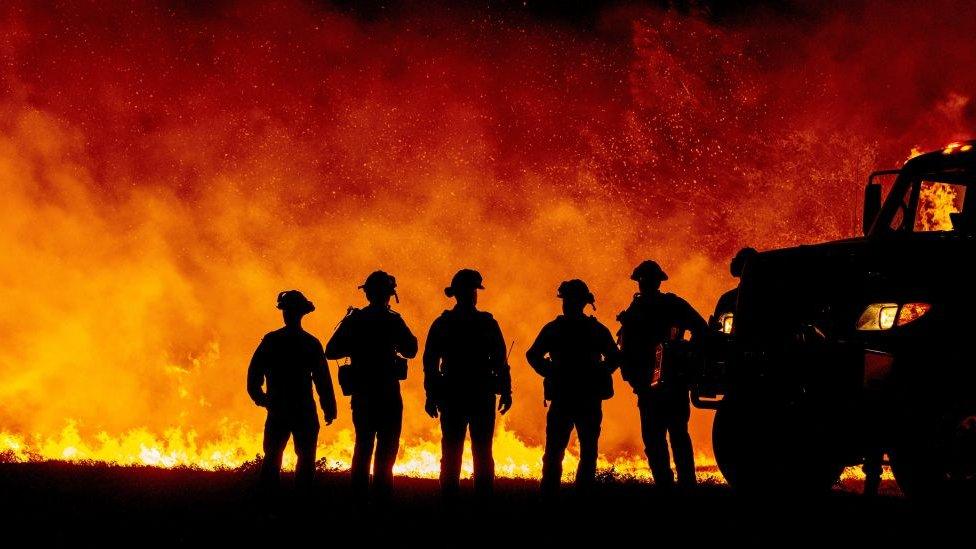
- Published16 November 2018
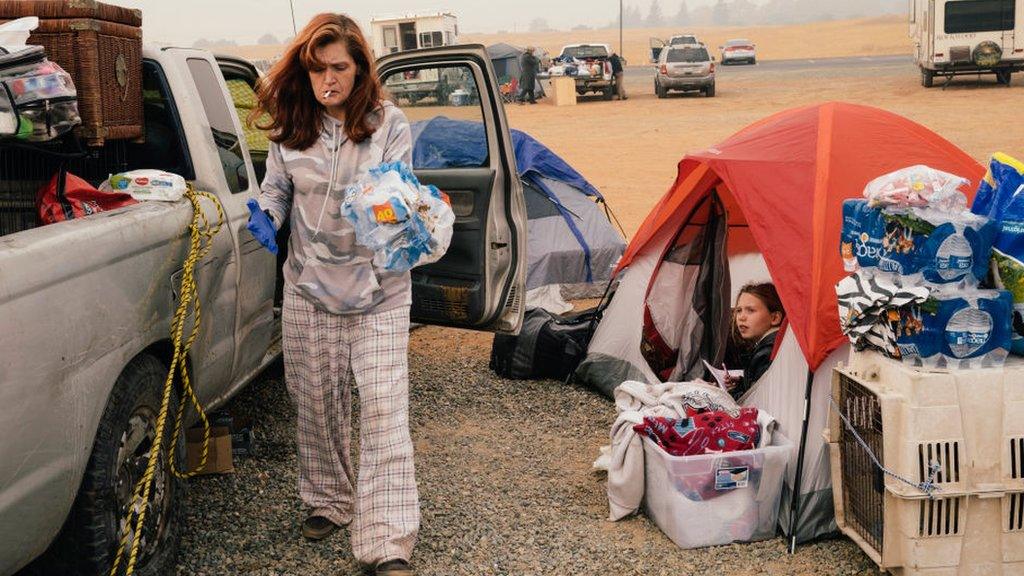
- Published15 November 2018
